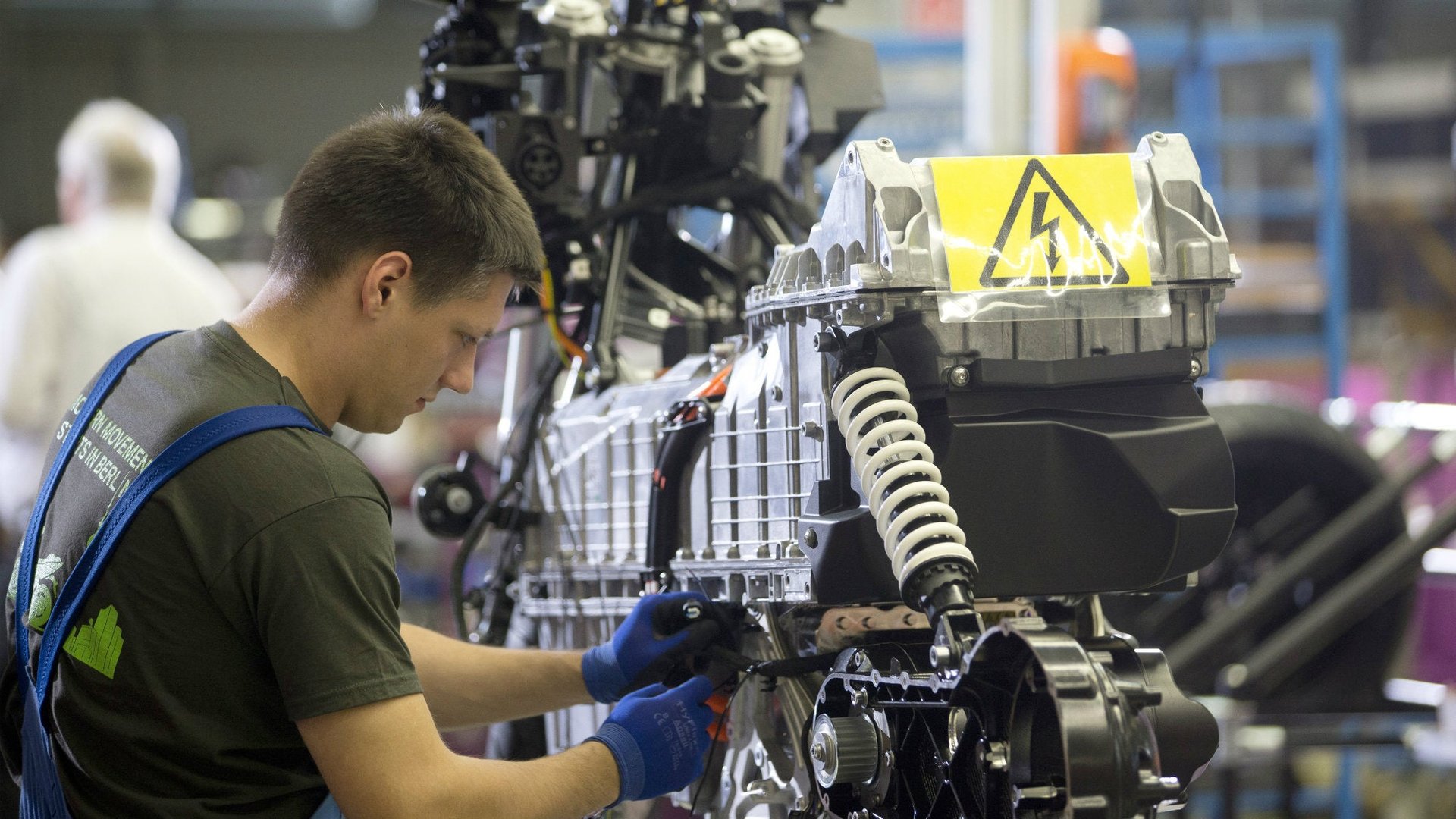An ingenious method for getting foreigners the jobs in Germany that Germans don’t want
Germany has one of the lowest unemployment rates in Europe, and one of the highest job vacancy rates. A Dutch venture philanthropy fund is trying an unusual method to fill the jobs that Germans don’t need with people who do.


Germany has one of the lowest unemployment rates in Europe, and one of the highest job vacancy rates. A Dutch venture philanthropy fund is trying an unusual method to fill the jobs that Germans don’t need with people who do.
The Start Foundation has teamed up with ABN Amro, one of the largest banks in the Netherlands, to create a social impact bond for the Dutch town of Enschede. (A social impact bond is one that gets repaid if specific social goals are met.) Start and ABN Amro are lending Enschede €1.1 million ($1.2 million) to find 138 local jobseekers employment across the border in Germany.
If they find permanent work there during the course of the program, which will run for about two and a half years, then Start and ABN will get their money back, plus interest. The idea is that Enschede will save on unemployment benefits, and can use that money to repay the investors. If the program fails, the investors lose their money, but there’s no expense to the Dutch taxpayers.
Though Enschede wins either way, it does have an incentive to make the program succeed: Getting the jobseekers off benefits permanently will save it money in the longer term. But Start follows the progress of the program closely to make sure the money is put to good use.
If all goes to plan, Start and ABN can expect to make between 4% and 8% in interest at the end of the program. These are hefty returns in an era of low interest rates; the benchmark yield for a Dutch bond is just over 0.1%. The investors won’t take more than 10%, says Jos Verhoeven, the director of the Start Foundation.
Social impact bonds are still pretty rare. The Brookings Institution estimated there was only about $162 million committed to these investments globally in March 2015. Start says there are currently about 60 bonds globally, mostly in the US and UK. They first appeared in the UK six years ago when one was used to fund a prisoner-rehabilitation program. In the Netherlands, the biggest barrier Verhoeven faces is that many local governments don’t want the extra the money or the interference in their budgeting process.
Even in Enschede, the bond will only help with a small part of the unemployment problem. There are 7,000 people in the area on unemployment benefits after textile industries shut down. Verhoeven thinks there is huge scope for more of these investments in countries where governments have less resources.
But as with all things involving money, he fears corruption. ”My only worry is that if there is a huge demand that the investors with the wrong ideas come into the picture and try to make money off the backs of the people who suffer from severe problems,” Verhoeven said.
So far Start has invested €3 million in social impact bonds in partnership with other financial firms. Verhoeven hopes to set up cross-border bonds involving German investors, and is investigating a national social impact fund to collaborate with similar philanthropies.